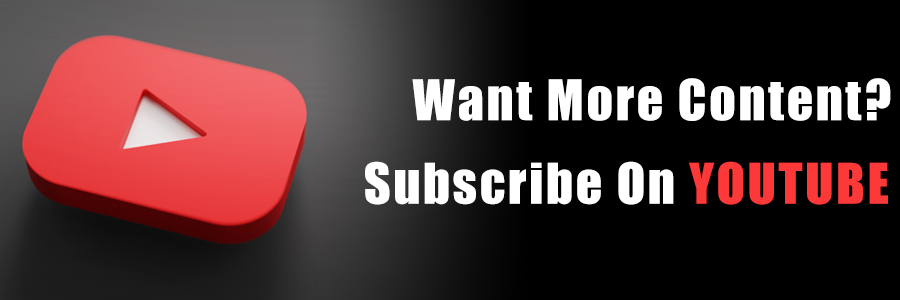I took a long time off from dating when the Gay Narcissistic Relationship ended and the Gay Narcissist moved on to replace me with the New Supply.
We’re talking a couple of years.
This wasn’t a decision I quickly came to. If anything, I resisted the idea and pretended it was ridiculous and unnecessary—dramatic and immature, even.
But now, with the wisdom of experience and hindsight, I see that I regulated my own self-worth through the opinions of other men—how they viewed me physically, sexually, and intellectually.
This culminated in meeting the Gay Narcissist and the establishment of the years-long Gay Narcissistic Relationship. So going cold turkey on needing a man to tell me I was worth anything left me with a nasty case of the jitters.
Good Enough
I’ve been building a narrative on this website for a few years now.
It’s a narrative describing my own experiences as a gay man caught up in the cycles of dysfunctional behavior, character disturbances, antagonistic personalities, and the golden topic everyone’s talking about in today’s mental-health movement—narcissism. More so, this narrative has grown to include the dysfunctional and toxic relationships of gay men I’ve anecdotally observed. I then tie it all together with lots of research from some amazing psychological professionals.
A glossary of sorts has emerged from my personal narrative, and one of the terms found in that glossary is a favorite of mine: the “Post-Discard Days.”
The Post-Discard Days comprise my stint of cohabitation with the Gay Narcissist after he dumped and discarded me, and then quickly moved to install the New Supply in my stead. Many of the anecdotes and observations that fuel the writings here come from the knowledge gathered during the Post-Discard Days, and one important bit of wisdom had to do with me and not the Gay Narcissist.
I finally realized that I needed a man to tell me I was good enough.
This conscious revelation fueled an inner dialogue that I must be the “narcissist” in the relationship—or, at least, I have enough antagonistic and manipulative patterns of behavior that drove the Gay Narcissist away and into the arms of the New Supply.
Keeping Score
I believed I was the primary problem until I read The Human Magnet Syndrome: The Narcissist Codependent Trap by Ross Rosenberg. This book pushed me to notice that my behavior mirrored that of a “codependent” partner and not that of a narcissistic one.
I choose to refer to my ex-boyfriend as the “Gay Narcissist” to both provide anonymity and also add some cheeky SEO to these posts. The identifier is inaccurate, though, since the behavior of the Gay Narcissist was quite, well, narcissistic.
His patterns of behavior showed contempt for our relationship, an unending need for validation and admiration from as many people as possible (especially sexual attention from other gay men), sullen victimization in some instances offset by blustery bravado in others, an entitled and arrogant attitude that the world owed him something, cold neglect for my own thoughts and feelings, and so on.
Meanwhile, I was the subservient codependent boyfriend forever nipping at the heels of the Gay Narcissist for his attention. If he needed the admiration and validation of everyone else, I desperately wanted it solely from him. And when I didn’t get it, I’d grow moody and aggravated. I’d passively-aggressively lash out at him and then feel sinking guilt afterward.
As I’ve written before, I was no innocent victim in the Gay Narcissistic Relationship, but I’ve finally accepted and made peace with the tally of my bad behavior versus his.
Real And True Crossroads
When the Gay Narcissist discarded me, I fundamentally believed my life was over.
So, to try and give any kind of relief to the desperation, I set out to find someone else to replace the validation he provided me.
As you can imagine, I ran through several different men—some were open and caring while others were sly and manipulative users. And as I met one new guy after the other, I finally started to see that the ultimate problem I needed to deal with was within myself. No one else could solve it for me—especially no other gay man I had romantic or sexual interest in.
Sometimes readers reach out to me and ask advice about their own narcissistic relationships and how to cope with them.
I always offer the same piece of insight:
They’re facing a very real and true crossroads in their life.
Since you’re here and you can see that something is forever different, you can choose to move forward and live a more authentic and self-actualized life. Or, you can choose to ignore the problem, chasing and begging for scraps of attention from people who don’t care and only want to use you.
I chose the former.
Understanding Process Addiction
I’ll say it again.
It was not easy.
It felt like something intangible was being torn from me when I finally deleted the gay dating apps from my phone. It felt like a life preserver was snatched away by a rogue wave and I was left to drown.
But by deleting those apps and stopping the search for outside validation, I was finally tackling my own process addiction.
And admitting you have a problem is always the first—and hardest—step.
Understanding the concept of a process addiction was revelatory for me. I didn’t have the slightest clue about this classification of addiction when the Gay Narcissistic Relationship was ending and I was forced to rebuild my life without the Gay Narcissist. But years later when I read the incredible book, The Velvet Rage: Overcoming The Pain Of Growing Up Gay In A Straight Man’s World, by Dr. Alan Downs, his writing opened my eyes to addictive behaviors beyond substance abuse.
In his book, Downs draws attention to the fact that gay men often use behaviors as a way of coping with deep and unmanaged shame around sexuality. Gay men use these behaviors to temporarily feel better about themselves without tackling core problems.
The all-consuming need for sex is an excellent example of a process addiction common among gay men. So are shopping, gambling, obsessively working out, and hunting for dates and relationships.
As Downs writes in The Velvet Rage:
“A Process Addiction [is]using a behavior to regulate your mood. At first, any process addiction is a choice to engage in a behavior that helps to radically shift your mood. Over time, you become dependent on the behavior, and it starts to feel like its out of control. Regardless of the consequences of repeating this behavior, you keep doing it to feel better. Again and again, you go do it, until you either find another way to regulate your mood or your life becomes consumed by the addiction.”
Getting rid of the apps and no longer entertaining the idea of meeting and dating other men was the first step. It was the only way I could start looking myself in the eye and figuring out what was really going on with me.
The second step was removing myself from the presence of the Gay Narcissist once and for all.
Yes, the Post-Discard Days did eventually end and I said my final goodbyes to the Gay Narcissist when I left the house we shared and moved into my own apartment alone.
That’s when the process of getting over the whole mess truly started.
“12-Month Cleanse”
If I am being completely honest, it wasn’t as bad as I thought it was going to be, but I first needed to get started.
It’s that way with anything worth doing. Getting started is always the biggest rough patch to overcome.
In the new book by Dr. Ramani Durvasula, It’s Not You: Identifying And Healing From Narcissistic People, she too recommends time off from dating once you emerge from a narcissistic relationship.
She calls it a “12-Month Cleanse,” and says it’s important so an individual emerging from narcissistic abuse can recalibrate and re-learn how to live life alone and free of the narcissistic person.
As Dr. Ramani says in the book:
During this cleanse period, you become familiarized with your own rhythms, preferences, and needs and you begin to unearth your authentic self. You learn to be alone and in the unfamiliar space of not having to give in to the reality of another person. One of the only ways to dismantle the trauma bonds is to tolerate the discomfort of the unfamiliar. During these twelve months, you can do things that scare you, feed you, and enthrall you. This is one year of walking through birthdays, holidays, and anniversary dates alone, or rewriting your narratives actively instead of substituting them with another person’s, and recognizing your capabilities.
Personally, I’m a rather private and introverted person, so entering a period of quiet alone time was more an act of reclaiming versus relearning.
Remember, the Gay Narcissist told me that one of the reasons why he was tossing me out for the New Supply was because I had no “passions” and I didn’t care about anything. He thought this because I wasn’t forever chasing nonsense and crap outside of myself, and my ability to sit quietly alone in a room and easily find contentment confused and perplexed him.
If anything, what I needed to learn was how to respect my desire for peace and quiet, and not let others intrude on it, dictate to me how I should live a loud and expensive life, and telling me to be more exciting.
I’ve stumbled a few times during my brief on-and-off periods of dating.
But I no longer need to date to feel worthy, and that’s an empowering position to be in.





